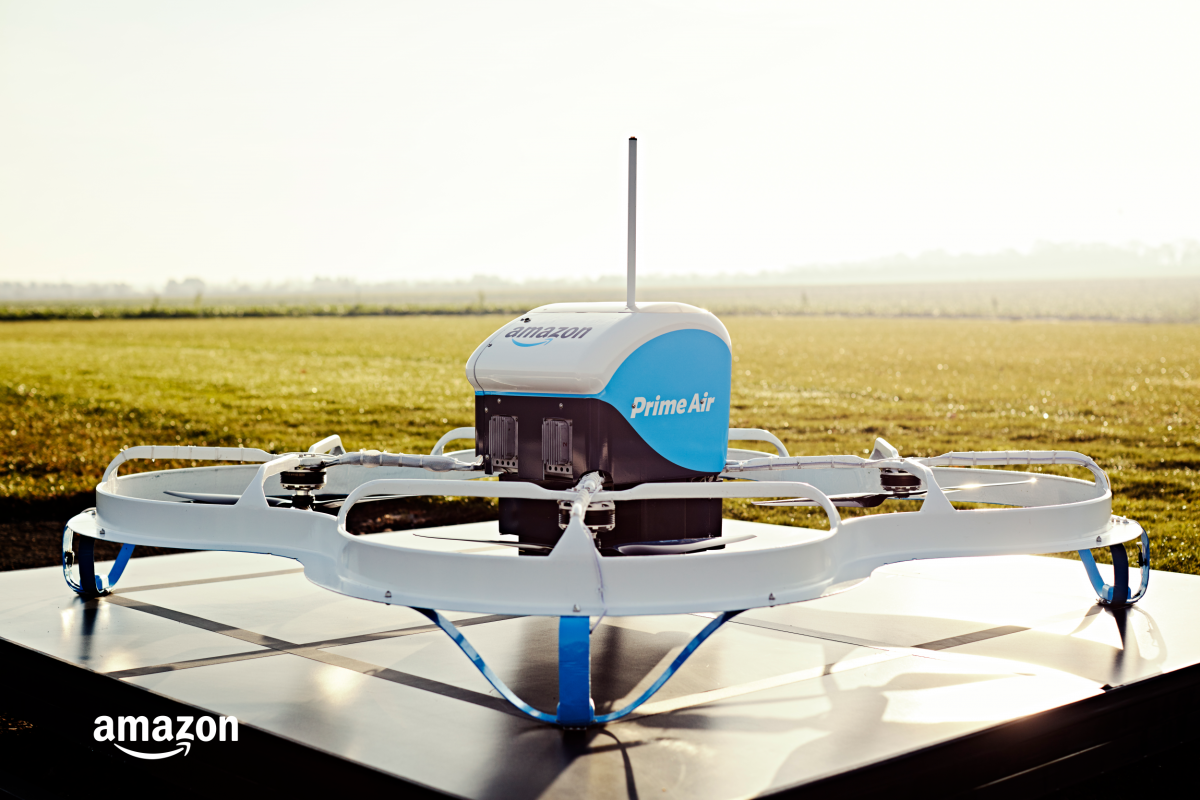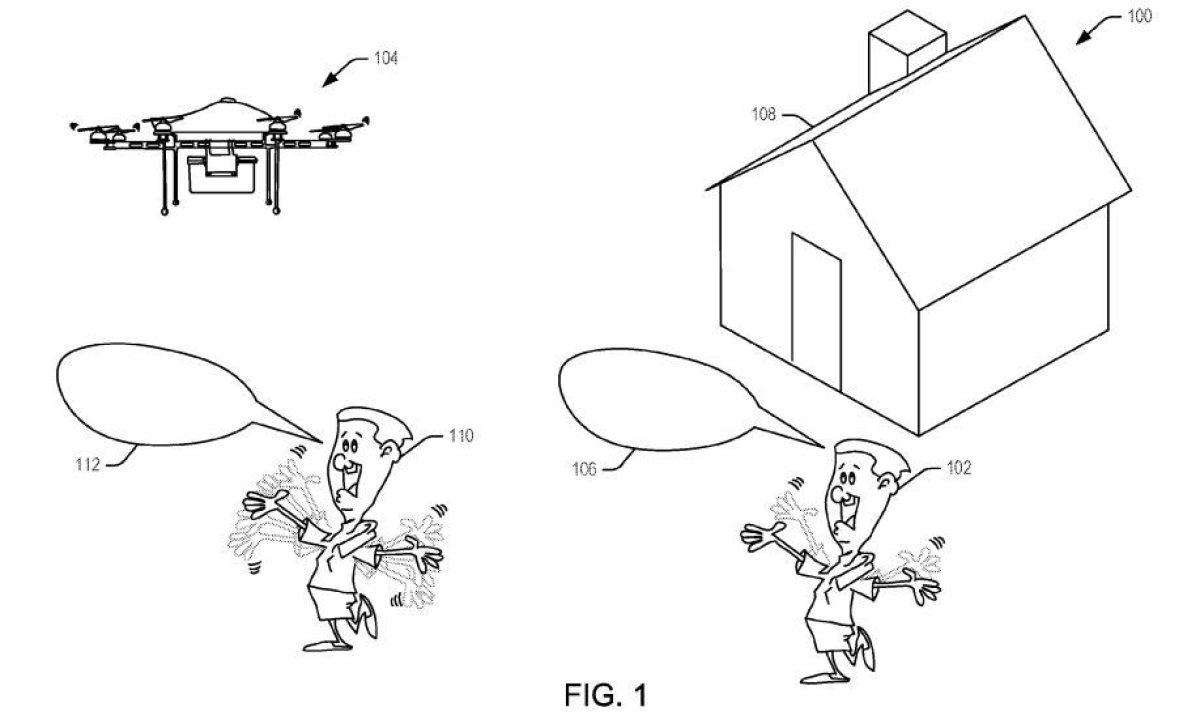Amazon has been awarded a patent that will let its package delivery drones recognize human movement and voice.
The online-shopping giant wants to shave delivery times down to just 30 minutes and plans to take to the sky to achieve it. Awarded on Tuesday (March 20), the patent would allow for drones to identify gestures such as a thumbs-up, frantic waving, shaking fists and a shooing motion.
Filed in July 2016, the patent also identifies voice recognition as a future control input for strangers. Someone who is bothered by a nearby drone would be able to shout for it to leave.

The drones would use a combination of depth, auditory and light sensors along with infrared and visible light cameras. They would also be capable of learning how best to deliver packages based on human interaction.
"In some examples, when in the learning context, a human operator may interact with the UAV (unmanned aerial vehicle) in order to 'teach' the UAV how to react given certain gestures, circumstances, and the like," the patent reads.
One of the images attached to the patent shows a man shouting and waving his hands at a drone outside a house. Another picture shows that drones would launch from nearby delivery trucks instead of directly from the factory.

Amazon delivered its first package by drone in December, 2016 under the name Amazon Air. It shipped an Amazon Fire TV and some popcorn to Cambridge, England, in just 13 minutes.
Amazon is no stranger to ambitious ideas. Earlier this year, the company was granted a patent for a smart mirror that could show you how you would look in clothing purchases. Using a combination of cameras and projectors, the mirror can theoretically map your body and let you "try on" the clothes.
At the beginning of 2017, Amazon was even awarded a patent for drone 'bee-hive' towers that would become the base of completely independent delivery UAVs. Instead of returning to a truck, like in the most recent patent, these drones would operate without human assistance. Amazon describes the tower concept as a "multilevel fulfillment center for unmanned aerial vehicles."
Uncommon Knowledge
Newsweek is committed to challenging conventional wisdom and finding connections in the search for common ground.
Newsweek is committed to challenging conventional wisdom and finding connections in the search for common ground.
About the writer
James Hetherington is a staff reporter for Newsweek covering technology.
Based in London, James previously covered technology for International Business Times ... Read more
To read how Newsweek uses AI as a newsroom tool, Click here.








